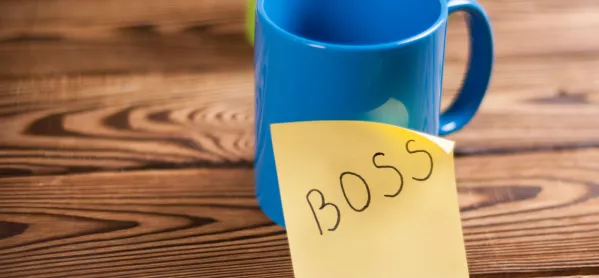One of the unique elements of being an international teacher is that your own children will be highly likely to attend the same school as you.
It can be a beautiful insight into their daily lives or it can be an embarrassing “yes, that’s my child” moment.
A few months ago, I took my youngest to look around his new school and meet the executive head. My five-year-old looked her square in the eye and asked her: “Are you the Big Boss?”
When told that that in day-to-day school life I would actually be his headteacher, Rufus replied, “Well, my Mum always calls herself the Big Boss in our house.” I admit to feeling a bit afraid at this point. What else was the child going to reveal?
Having your own child at your school
Of course, there are perks, too.
You can usually attend the school plays, concerts and parents’ evenings without too much fuss. International schools are, on the whole, very family-orientated and will provide cover to help staff to be parents, too.
I have never missed one first day or special event, as we get to share them all. If you are running late for pick-up or forget to pack the lunch, there is always support.
But you do have to ensure that your work life and home life don’t become so intertwined as to become one entity.
For example, both my husband and I are teachers, so one of the rules we have is that we are the contact point for the child not in our section. So as the children have both been in his, I was the one who was contacted for any indiscretions.
Thankfully neither have been in trouble at school…
All-seeing eyes
For the children, too, it’s not an easy situation. They literally get away with nothing. Good or bad. Corridor conversations such as “Fabien was great in PE today” as you pass are fine, but sometimes I think well-meaning colleagues tell you things they would never call or contact a parent about, such as ‘Rufus was a bit chatty today” or “Fabien didn’t eat all his lunch”, giving the child no freedom from the all-seeing Big Boss.
I used to think that these worries were a good few years away as I was in senior school and I could not think of anything more embarrassing than having your mother teach you or, even worse, be SLT.
Now I face the prospect of having both under one roof and being in charge.
The larger schools usually have a policy that teachers do not teach their own kids but in smaller schools that might not be possible. I have often wondered how being a teacher-kid affects their friendships and the way in which colleagues view you.
However, despite my concerns, I don’t think it is the same experience for international teachers’ children as it might be back in the UK, as it is quite an acceptable part of school life to be friends with a teacher’s child or have a teacher’s child in your class.
You’re not the boss of me
In fact, in every school I have worked in, there is quite a community of staff children. There are usually playdates outside of school and they become firm friends.
This is great in many ways but it can lead to the peculiar situation where you are teaching the offspring of children whose parents you socialise with, especially if they forget to call you Miss and end up using your real name in the classroom - shock horror.
You sometimes hear horror stories, too, of precocious principal’s children who remind teachers and school staff that their daddy is the boss of them, leaving staff quaking in their boots.
This is me now, the vice principal, the Big Boss.
As such, I am now on tenterhooks waiting for the moment when my child shouts out “You’re not the boss of me!” to me when I am on playground duty.
How will I break it to him that he has just lost golden time and is sitting in my office? I will have to phone his dad to collect him.
Julia Knight is vice-principal at Eton House School in Bahrain. She has been teaching internationally for eight years




